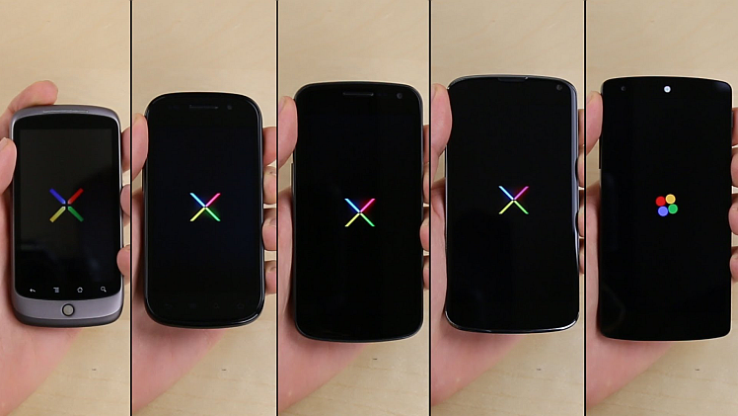
Have you ever been on a roller coaster? If you have, then you'll understand the feeling that I'm about to describe. On many rollercoasters, one of the first things that happens is your cart will be pulled up by a chain to the top of a very large hill. Once you get to the top, you hang there for a couple of brief moments before the chain lets you drop down that hill, resulting in an exhilirating (or dreadful) feeling of freefalling. Why, exactly, am I giving you a lesson on roller coasters on a mobile tech website? Mostly because it's the best analogy I can think of when it comes where I think smartphones stand right now. To me, it feels a lot like smartphones are at the top of that hill, and right now we're experiencing that tense, hanging moment before that first drop.
Smartphones have come a long way since their inception. We've had so many big changes come to smartphones, both aesthetically and specification-wise. It's amazing to look back at some of the earlier versions of Android, many of which featured slide-out physical QWERTY keyboards, trackballs, or trackpads, and see how they evolved into what Androids we see on the market today. Perhaps an even bigger leap is looking at the old BlackBerry phones and looking at a more modern BlackBerry like the Z10.
There also seemed to be a lot bigger differentiation between different platforms, specs, and overall UI of each platform in the beginning. However, over time the amount of differences between each phone, no matter what operating system, seems to be growing fewer and fewer each year. If you put an iPhone, an Android, and a BlackBerry 10 device next to each other, it's not hard to see they have a ton of similarities. If you were to compare the performance on each phone, you're probably not going to see much of a difference. Even Windows Phone devices are starting to match up with other flagships spec-wise. Despite the sheer amount of smartphones on the market right now, to me, they're all just starting to blend together; we seem to be at a point that when we start comparing phones, we have to be very nit-picky about what makes a phone that much better than other phones - and most of it is going to be personal opinion.
We know there's a lot in store for the future of smartphones, though. We hear about graphene, about 5G network speeds, and about potentially being able to create our very own smartphones. There are a lot of good things on the horizon for sure, but until those things are even close to being implemented it just seems like every next gen device is minor in comparison to what is to come, or trying way too hard to make it seem like it's something marvelous when it's really not. Like, the LG G Flex? I mean, I guess a curved display is cool, but I don't really see that as a groundbreaking feature. An incremental step in the right direction towards truly flexible displays, yes, but it's not something that I really find myself wanting to shout from the mountaintops about.
So that's kind of where the whole roller coaster analogy comes in. We've come a long way since starting out on this ride, but we're out of more uphill space. We're at the top now, and we're waiting for that exhilirating drop into some true breakthrough technology that takes smartphones to the next level. Not curved displays, not higher PPI (which hardly matters anyway nowadays), not phones teetering on the edge of being defined as a tablet; real breakthough technology that makes batteries last for a week solid, where phones can twist and bend freely, or phones that feature personal assistants that can resemble AI comparable to the likes of Samantha from "Her" (although hopefully not that personal, I guess).
I don't want to say we're in a slump, because technology has brought us a long ways up, not down; so instead, we'll stick with the roller coaster description because it seems fitting. We're suspended, waiting intently for something to come along and really (and I mean really) wow us. But it's probably going to be a while before that happens, so... I hope you like heights.
Readers, do you think that smartphones have come to a standstill? Or do you think that these next gen devices provide real significant changes to the industry? Share your thoughts and opinions with us!
Image via Digital Trends